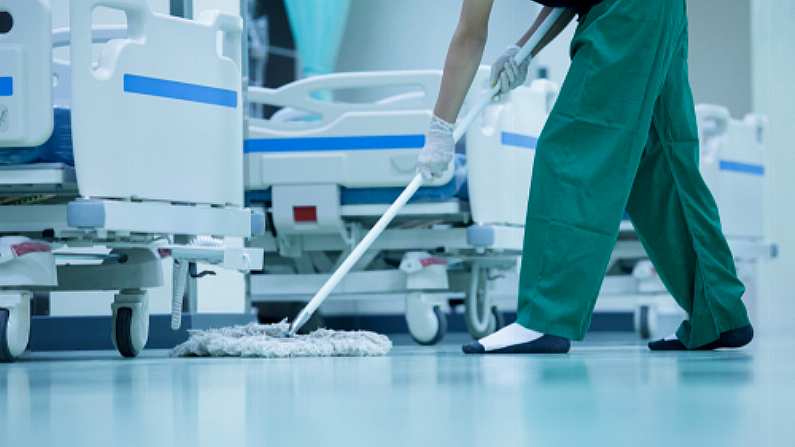The last month has provided a great lesson on what is essential work and what is non-essential work in this world of ours. When we come through this, we can only hope that our elected officials will choose to back up their praise of frontline medical staff with some financial reward. It's the least they deserve.
Of course, it's not just doctors, nurses, paramedics, pharmacy staff and guards who are leading this fight. There are other workers who haven't had the luxury to work from home. Here are just some of the hardworking people who deserve some kind of remuneration for all the selfless work they've been doing this month. Life may be changed but our quality of life hasn't and that's down to these people.
Coronavirus has revealed that 40% of us can work from home without the world falling apart, and the other 60% should honestly be getting paid a lot more.
— Chad Loder (@chadloder) April 12, 2020
The people who clean hospitals
Some of the most important people in Ireland's battle against Covid-19 are hospital cleaners. The disease is highly contagious and needs to be properly curtailed inside hospitals in order to contain its spread. Before coronavirus arrived here, hospital cleaners were already performing a vital role in keep our health system functioning. In the age of Covid-19, their work is absolutely essential.
“We're ready for this. This is what we do every day. When we enter those rooms, they are cleaned from top to tail. We're trained to do this, and we'll keep on doing it. We've got this.” #coronavirus
Thanks to our cleaners working across Ireland. #covid19#FrontLineHeroes all 👏 pic.twitter.com/oIc86LpbLw— SIPTU Health Division #JoinAUnion (@siptuhealth) April 5, 2020
This tweet from the UK also captures the spirit of selflessness that many hospital cleaners embody. Along with porters, catering staff and care workers, cleaners make it much easier for doctors and nurses to their jobs.
Honoured to join an army of cleaners disinfecting Covid wards our local hospital after receiving training. London has been my home since leaving Syria, and the least I can do is making sure my neighbours and the amazing NHS staff are safe and sound. #StayHomeSaveLives pic.twitter.com/7XkBwSiXW8
— Hassan Akkad حسان عقاد (@hassan_akkad) April 7, 2020
People working in supermarkets and shops and petrol stations
For those of us self-isolating who don't have to work in an 'essential' service, the weekly trip to the supermarket is the one place where we have to confront our vulnerability to the disease. For thousands of people in the country, the supermarket is a place of work. Supermarkets were not the best paying careers before this virus and now staff are regularly exposed to people who may be carrying coronavirus. In America, 41 supermarket workers have died from the disease, For shoppers, the once-simple act of purchasing food now feels like a scene from a dystopian novel. But what it must it be like to work in a supermarket?
This account of a teenager's travails working in an 'essential' store highlighted the ridiculous stress of the job.
In the US and UK, supermarket workers are under similar pressures.
Sorry but supermarket workers are not getting enough credit atm - we are risking our lives just as much as the NHS being in contact with hundreds of people to feed our nation so think about that and be respectful and kind before you scream at me over a tin of peas😊
— libby russell (@libbyrussellx) April 6, 2020
Supermarket workers are keeping us all fed. Without them and their patience, this lockdown would be a lot harder.
The people delivering packages
Some of us have been spending out free time ordering essential products online. Some of us have been our free time ordering nonessential products online. The delivery people (and the other people you don't see on the logistical chain back in factories) have been delivering these packages without complaint, no matter what's in the box or where it came from.
Ditto the postmen.
The binmen
We've proven our ability to purchase in bulk over the last month. We've also shown our ability to throw things away. What if the binmen decided to sit this crisis out because they might be exposing themselves to this disease? Thankfully the bins have been collected every week, and we can continue disposing of trash.
The people who keep the internet running smoothly
Where do we even begin? Thank you, whoever you are.













